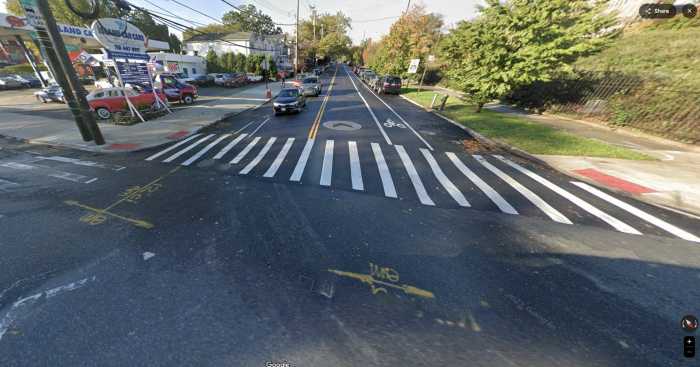In this pandemic, it’s hard to think about your mortgage payments while struggling to maintain your health. However, if you own real estate, you must think about your mortgage or you will face foreclosure. If you are currently struggling to make ends meet, what will happen in a few months if stay-at-home orders remain in place? This situation will easily devolve into a foreclosure crisis the likes of which we haven’t experienced since the Great Recession. To avoid becoming a COVID-19 foreclosure statistic, you must act now.
Here is the truth- lenders do not want to foreclose on any mortgage. It has nothing to do with the humanity of taking a family’s home; instead, foreclosing is just not good business. Foreclosing in New York is expensive and requires a long court process. Plus, the result of foreclosure often involves your lender owning your house. Lenders don’t want to own your house. Lenders want you to pay your mortgage bill; that’s it. That is good business for them. However, in this financial environment, that just can’t happen for millions of people who are unemployed, underemployed or financially depleted. If you are one of these millions of people, you need to contact your lender immediately to negotiate a mortgage workout, such as a forbearance, modification, short sale, or deed-in-lieu.
A forbearance agreement enables a borrower, who has experienced a short-term hardship, to temporarily suspend or reduce their mortgage payments during that hardship. At the end of the forbearance period, the borrower will be required to resume payments. Additionally, the borrower will now be accountable for those missed payments. Yet, the timing of when those missed payments are to be repaid varies and must be negotiated between the borrower and the lender. They can be ballooned immediately upon payments restarting or they can be ballooned at the end of the loan’s term or they can be spread out throughout the remaining term of the loan. None of the three possibilities are automatic. You can’t assume when the missed payments will be due. Instead, you need to negotiate this detail with your lender and execute a written agreement that provides the details of the duration of the forbearance, the amount due during the forbearance, and how / when the unpaid money will be repaid to the lender. Only then can you begin missing payments while avoiding foreclosure.
The CARES Act has caused a lot of confusion with forbearances because it requires lenders of federally backed loans to provide a 180-day forbearance. NYS has a similar program for lenders regulated by NYS’ Department of Financial Services. As a result, many borrowers believe that they can magically stop paying their mortgage without consequence. This is not true. Further, the Act and the NYS Executive Order do not provide how repayment of the missed payments shall occur. So, you need to contact your lender and negotiate a written agreement for your specific forbearance. If that is overwhelming, you need to hire an attorney to do it for you. Remember the devil is in the details so you or your lawyer need sto go through your agreement with a fine-tooth comb and make sure it meets your expectations before forgoing payment on your loan.
If a forbearance does not work for your situation there are other options available. Perhaps your situation is more permanent and a temporary reprieve won’t help. Then, you should consider negotiating a loan modification. Such an agreement may expand your loan’s term (i.e., make it longer), lower the interest rate, or forgive part of the loan balance. Lenders are willing to provide loan modifications because they can avoid having to deal with managing real estate while continuing to receive mortgage payments. However, again, the devil is in the details and even if a loan modification is available to you, you need to make sure that you can abide by your modified loan terms because if you can’t, the lender will be forced to foreclose your house. So, either hire a lawyer or take out that fine-tooth comb and get to analyzing your modification agreement before you start to make reduced payments on your mortgage.
If you are no longer able to pay your mortgage, even if it’s modified, you need to speak up to avoid foreclosure by requesting a short sale. This type of sale involves your lender accepting a loan payoff in an amount that is less than the loan balance remaining on your mortgage. Short sales involve a private sale, but the key to a short sale is that the lender will release its lien to facilitate the closing. Yet, again the devil is in the details because a short sale is only a positive option for a borrower who also obtains a release from their lender. Without a release, the lender can pursue a lawsuit on a breach of contract for that deficiency amount of your loan following the completion of the short sale. As a result you should only consider a short sale if you also obtain a release, which exonerates you from future liability on the mortgage note.
Sometimes a short sale won’t work because you can’t identify a private buyer to purchase your house. In this situation, you should negotiate a deed-in-lieu of foreclosure. This option is similar to a short sale, but instead of finding a private buyer, the lender takes title to the property in consideration of a release on the loan. Yet, again, the devil is in the details because it’s theoretically possible to obtain a deed-in-lieu without obtaining a release on the mortgage note. In that case, you will remain liable on the loan balance above the valuation of the property transferred to the lender and you can be sued on that amount. So, study the details of the agreement that you make before you stop making mortgage payments.
Complicating each of these mortgage workout options are other liens existing on your property. These liens can be subordinate (second / home equity) mortgages or judgments against you. When these exist, the details of your situation can quickly become more complex. Nonetheless, you can almost always solve even the most complex of situations if you work on it proactively, before you default, before your loan is accelerated to the principal being currently due, before you are served, and before you are in a foreclosure lawsuit. It’s time to pick up the phone and address your situation now before you have a foreclosure on your hands. While we cannot control much these days, we can proactively avoid foreclosure.























